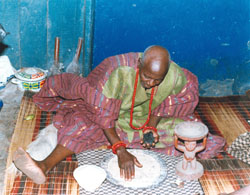 International experts will meet at UNESCO Headquarters on 23 November to examine the problem of violence against girls in school and how it should be dealt with. The roundtable, will be opened by Director-General Koïchiro Matsuura and Michel Doucin, Ambassador for Human Rights, French Foreign Affairs Ministry. The meeting will be divided into three panels that will focus on:
International experts will meet at UNESCO Headquarters on 23 November to examine the problem of violence against girls in school and how it should be dealt with. The roundtable, will be opened by Director-General Koïchiro Matsuura and Michel Doucin, Ambassador for Human Rights, French Foreign Affairs Ministry. The meeting will be divided into three panels that will focus on: - The role and responsibility of national and local public authorities,
- The role and responsibility of civil society and NGOs
- The role and responsibility of educational personnel
Recent reports, including Mr. Pinheiro’s study, The Secretary-General’s in-depth Study on Violence against Women, and the Education for All Global Monitoring Report published by UNESCO, show that gender-based violence in schools, often in the form of sexual violence and harassment, persists in all countries. It represents a generalized violation of human rights and a major obstacle to the achievement of Education for All: of the some 77 million children not enrolled in school, some 55 percent are girls.
The roundtable is organized by UNESCO, the French National Commission for UNESCO and the French Ministry of Foreign Affairs.
